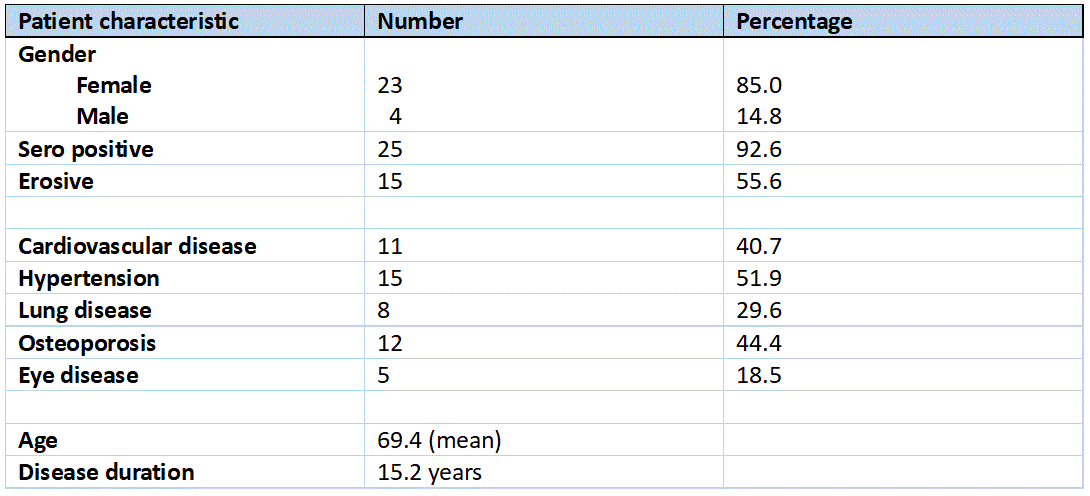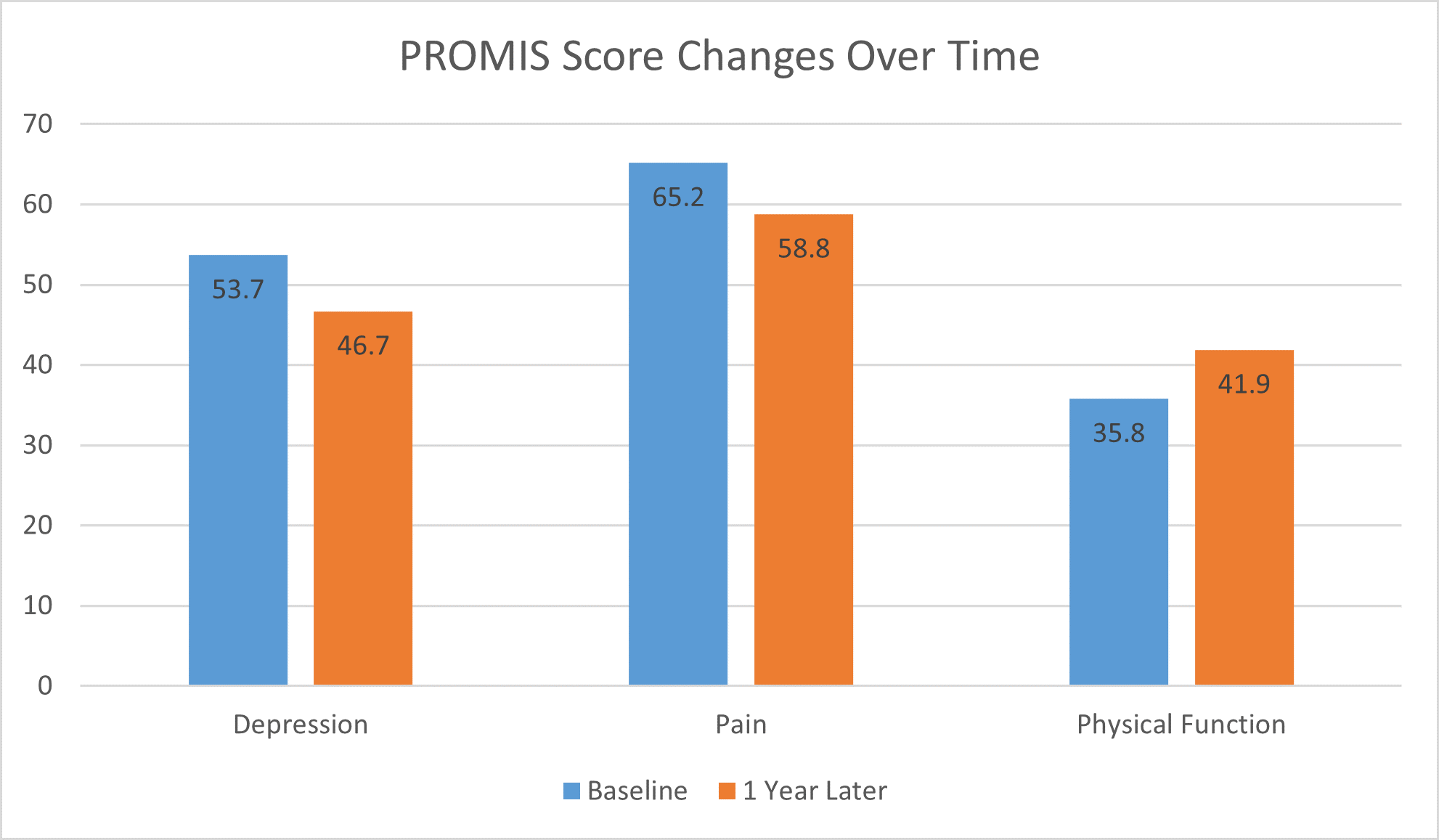Session Information
Session Type: Poster Session B
Session Time: 10:30AM-12:30PM
Background/Purpose: Rheumatoid Arthritis (RA) is often associated with comorbidities including hypertension, cardiovascular disease, osteoporosis, lung disease, and eye involvement. Studies suggests that the average RA patient has 1.6 comorbid conditions which is higher as compared to the general population.1 Moreover, there is a higher presence of comorbidities among marginalized communities. RA patients with comorbidities suffer higher levels of pain and depression and have lower levels of physical function and overall quality of life. Addressing the needs of RA patients with multimodality thus requires developing new practice models to incorporate the realities of comorbidities, reducing duplicative services and adopting a patient-centered approach.
Methods: We developed an integrated, patient-centric, coordinated care model, RA CHAMP program, that in addition to standard of clinical care, our program utilizes self-management to improve quality of life for RA patents with multimorbidity. The RA CHAMP program focuses on following objectives (a) effective use of community resources (b) coordinate with other specialists for early referrals (c) enable early access to rheumatology care (d) encourage medication adherence (e) encourage physical activity. Self-management programs are organized monthly, via zoom, and led by a physician assistant and nurse. This is followed by 30 minutes of exercises led by a physical therapist. Patients with more than 1 comorbidity were invited to join the RA CHAMP program. We then evaluated the benefits of the program on physical function, depression and pain, as measured using PROMIS, at baseline and a year later. Additionally, a patient survey was used to rate the program on a Likert scale of 1-5 and on the likelihood of them implementing a regular exercise regimen (1-5).
Results: A total of 45 patient have enrolled to date in the RA CHAMP program. This group comprised 27 subjects with RA. This comprised 23 females (85.1%) and 4 males (14.8%) and included 17 Caucasians (62.9%), 7 Black patients (25.9), 1 Hispanic (3.7%), 1 American Indian (3.7%) and 1 Asian (3.7%). A total of 25 (92.6%) were seropositive and 15 (55.6%) had erosive disease. The average age of patients was 69.4 years old, and the average disease duration was 15.2 years. Twenty patients (74%) were on conventional DMARDs and 15 (55.6%) were on biologics (see Table 1). Comorbidities were seen in 26 (96.2%) of patients with hypertension being most common followed by osteoporosis. Our cohort had on average 1.96 comorbidities.
PROMIS scores were available for 25 of the 27 patients at baseline and 1 year after enrolling in the program. The mean scores for depression were 53.7 at baseline and improved 46.7 at one year. Mean scores for pain also improved from 65.2 to 58.8. Mean scores for physical function improved from 35.8 to 41.9 (see Fig 1).
Conclusion: A patient centric program that incorporates care coordination and uses self-management results in improvement in physical function, pain, and depression in most patients with RA and empowers patients to take responsibility for their treatment. Larger and longer studies will help confirm these findings.
To cite this abstract in AMA style:
Barbut A, Jackson M, Kowiak K, McIntyre J, Anandarajah A. Impact of a Coordinated Care Model for Addressing Rheumatoid Arthritis and Associated Comorbidities [abstract]. Arthritis Rheumatol. 2024; 76 (suppl 9). https://acrabstracts.org/abstract/impact-of-a-coordinated-care-model-for-addressing-rheumatoid-arthritis-and-associated-comorbidities/. Accessed .« Back to ACR Convergence 2024
ACR Meeting Abstracts - https://acrabstracts.org/abstract/impact-of-a-coordinated-care-model-for-addressing-rheumatoid-arthritis-and-associated-comorbidities/


